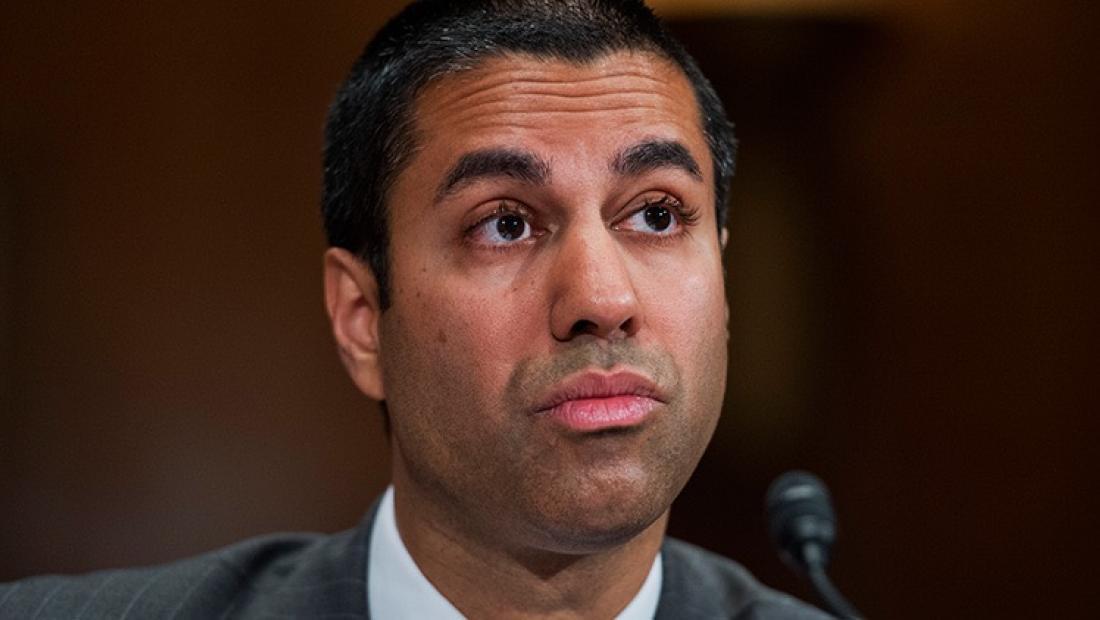FCC's Pai: We're Turning Diversity Talk Into Action

The smarter way to stay on top of broadcasting and cable industry. Sign up below
You are now subscribed
Your newsletter sign-up was successful
FCC chairman Ajit Pai took the opportunity of a minority-focused policy conference in Washington to talk up his proposed diversity incubator program, which was an element of the November broadcast deregulation item approved by the Republican majority.
He said next steps in that proposal would be announced next month.
The program would incentivize existing companies to help diversity the media ownership landscape. For example, the chairman said, an established company, in exchange for a "defined benefit," could assist a new owners by providing management of technical assistance, or loan guarantees or training or business planning. "There are many ways to skin that cat," he said.
The FCC's November local ownership deregulation vote stemmed from a re-review of the ownership regs tied to a court mandate to include in any regulatory or deregulatory decision its impact on media ownership diversity.
Related: NAB Seeks To Intervene in Diversity-Related Challenge to FCC Decision
Pai told an audience at the Multicultural Media, Telecom and Internet Council (MMTC) ninth annual Broadband and Social Justice Summit in Washington Tuesday (Feb. 6), that while there has long been general support for the incubator idea--including from MMTC--the idea had stalled because "past commissions had failed to take action," adding: "That is until now."
The chairman pointed out that under his watch, the FCC had "finally agreed to adopt an incubator program to promote diversity."
But Pai was not done with the action talking points. "As I said in November when we adopted this notice, there was a lot of talk during previous administrations about trying to take actions to promote ownership diversity, but there was little to nothing done about it. Well, no longer," he said, turning to one of the cultural references he is fond of integrating into his public speeches. "To borrow from Yoda and The Empire Strikes Back: 'Try not. Do, or do not. There is no try.’ Much wisdom in that statement there is," he said (to the implied sound of the “badda bum, bish!” of a drum riff and cymbal crash), adding: "I'm here all week, folks."
Pai said he was determined that the FCC on his watch would takes steps to create a more diverse media industry." He called the work toward establishing the incubator program was a "big step forward." He said he would take the next steps forward toward that goal at the diversity advisory committee's next (March) meeting.
The FCC didn't actually vote to create the incubator program back in November, but instead voted on a notice of proposed rulemaking to seek input on how to create it. Pai said that was because there were still issues to address, like how to design and implement it, what the eligibility criteria should be and how such a program will be reviewed, monitored and enforced, as well as its costs and benefits. "We want to develop a record on how best to structure and administer an incubator program," he said.
The goal he said is to address barriers to station ownership, including lack of access to capital and the need for technical expertise.
He also pointed out that he had asked the FCC's diversity advisory committee, reconstituted under his watch, to help develop the program.
Pai's promotion of the incubator program, and of the diversity committee's renewed charter, comes as the FCC is under fire from media consolidation critics for that November deregulatory decision, one they argue was made without sufficient vetting of its impact on diversity.
In fact, Prometheus Radio Project, which has been fighting broadcast dereg for the better part of two decades, has asked a federal court to stay that broadcast dereg decision and force it to collect more input on its impact on diversity. The FCC has told the court it did do its due diligence in that regard.
In a follow-on session at the MMTC conference, Larry Irving, former top communications policy advisor to President Bill Clinton, said that he was concerned that an incubator program could become a front for the expansoin of those established companies getting those defined benefits. He said there was no greater way for these programs to lose support from Democrats. "If we're not very careful, we could have a problem," he said.
Former FCC chairman Dick Wiley said that the devil was in the details, but that he was excited by the potential of the program and said the basic concept of a quid pro quo that helped the stations and minorities was "great."
The smarter way to stay on top of broadcasting and cable industry. Sign up below
Contributing editor John Eggerton has been an editor and/or writer on media regulation, legislation and policy for over four decades, including covering the FCC, FTC, Congress, the major media trade associations, and the federal courts. In addition to Multichannel News and Broadcasting + Cable, his work has appeared in Radio World, TV Technology, TV Fax, This Week in Consumer Electronics, Variety and the Encyclopedia Britannica.

